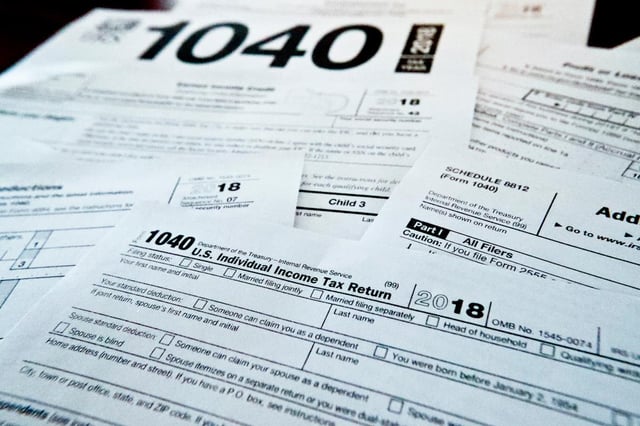It’s tax season… almost. And while the dread of gathering W-2s and deciphering deductions might be setting in, there’s another piece of tax-related news that could significantly impact how millions of Americans file in the future. Reports are circulating that the IRS’s planned free tax-filing tool might not see the light of day in 2026. What does this mean for you and your wallet? Let’s break it down.
The IRS Free File Tool: A History and a Hope
For years, the IRS has partnered with private companies to offer free tax filing services to eligible taxpayers through the Free File Alliance. This program allows individuals meeting certain income requirements to file their taxes online using brand-name software at no cost. However, participation in this program by private companies has waned over the years, and many felt the eligibility requirements were overly restrictive.
The IRS recognized the need for a more accessible and user-friendly free filing option. As a result, they began exploring the development of their own free, direct-file system. This initiative aimed to provide a truly free option for all taxpayers, regardless of income, simplifying the process and potentially saving individuals money on tax preparation fees. The goal was to launch this direct file option in 2026.
The Potential Benefits of an IRS-Run System
A direct-file system run by the IRS held several potential advantages. First and foremost, it promised to be truly free, without the income limitations or upsells often associated with commercial offerings. Secondly, it could simplify the filing process, guiding taxpayers through the complexities of the tax code in a clear and straightforward manner. Imagine a streamlined interface, tailored questions based on your specific circumstances, and direct access to IRS support. This could drastically reduce errors and alleviate the anxiety many feel around tax season. Finally, it could increase tax compliance, ensuring more Americans accurately file and pay their taxes.
Why the Delay (or Possible Cancellation)?
So, what’s causing this potential setback? While official details are still emerging, it appears that the decision hinges on a number of factors, including political considerations, lobbying efforts from the tax preparation industry, and concerns about the IRS’s capacity to develop and maintain such a complex system.
It’s no secret that the commercial tax preparation industry has a vested interest in maintaining the status quo. Companies like H&R Block and TurboTax generate significant revenue from tax preparation services. A free, government-run alternative could eat into their profits, leading to opposition and lobbying efforts to prevent its implementation. Some argue that the IRS lacks the expertise and resources to create a user-friendly and secure system that can handle the complexities of the tax code. Concerns about data security and the potential for errors are also being raised.
The Impact on Taxpayers
The discontinuation of this project would disproportionately affect low- and moderate-income taxpayers, who are most likely to benefit from a free filing option. These individuals often struggle to afford professional tax preparation services and are more vulnerable to predatory practices. Without a free and accessible alternative, they may be forced to rely on paid services, potentially spending a significant portion of their income on tax preparation fees. Even simple returns can cost upwards of $100 with some providers. For those living paycheck to paycheck, that extra expense can have a serious impact.
What Are Your Options?
While the future of the IRS’s direct-file system remains uncertain, taxpayers still have several options for filing their taxes:
* **IRS Free File Program:** This program continues to offer free filing through private companies for eligible taxpayers. Income requirements apply, so be sure to check if you qualify. The IRS website (irs.gov) has all the information on income thresholds and participating providers.
* **Volunteer Income Tax Assistance (VITA):** VITA is a program run by IRS-certified volunteers who provide free tax assistance to low- and moderate-income individuals, people with disabilities, and those with limited English proficiency. VITA sites are located throughout the country.
* **Tax Counseling for the Elderly (TCE):** TCE provides free tax assistance to individuals aged 60 and older, focusing on retirement-related issues.
* **Paid Tax Preparation Services:** If you have a complex tax situation or simply prefer professional assistance, you can hire a tax preparer. However, be sure to research and choose a reputable preparer to avoid scams and ensure accurate filing.
* **Good Old Paper Forms:** Don’t forget the traditional method! You can download tax forms and instructions from the IRS website and file by mail. This option requires more effort and knowledge of the tax code but is completely free.
The Road Ahead
The news surrounding the IRS’s free tax-filing tool is undoubtedly disappointing for many. While the reasons behind the potential cancellation are complex, the impact on taxpayers, particularly those with limited financial resources, is clear. It’s crucial to stay informed about developments in this area and advocate for policies that promote accessible and affordable tax filing options for all Americans. Whether the IRS pursues its own free filing system or strengthens its existing Free File partnerships, the goal should be to simplify the tax process and ensure that everyone has the opportunity to file accurately and easily. In the meantime, explore your existing options, plan ahead, and remember, knowledge is power when it comes to navigating the complexities of the tax system.
